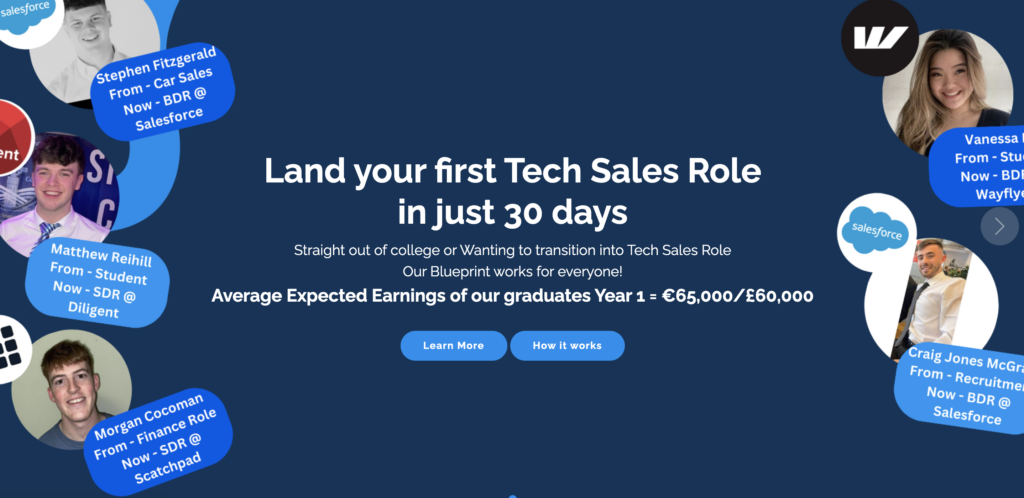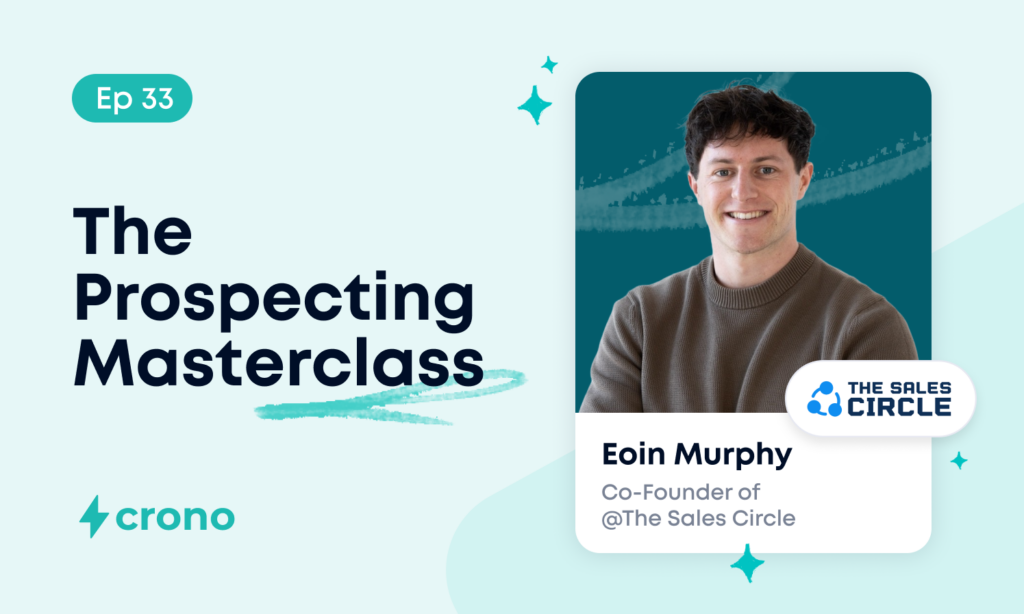The Prospecting Masterclass ep. 33
Hey there Croners! Welcome back to The Prospecting Masterclass, the original Crono column that gives you insights and tips from the best minds in sales.
In this episode, we’re thrilled to have someone who loves sales so much that he’s actively helping anyone (especially students and graduates) land their first dream job.
You’ve probably already seen some of his content on social media, in this interview, we’ll try to inspire you a little bit. Welcome Eoin Murphy, co-Founder of @The Sales Circle!
Hi Eoin! quick one to get started: 5 words to describe yourself...
Determined, optimistic, empathetic, passionate and energetic!
How did you get your first job in sales? What's your career path?
I started in sales at 14, working for my dad at trade shows selling forestry machinery, so sales was always a part of me.
During college, I initially pursued a finance path, but while doing a 9-month banking internship, I realized that it wasn’t what I wanted.
A friend of mine reached out because he couldn’t find a summer internship, so I offered to help.
The first role I came across was for a “Sales Development Intern” at Salesforce. The description caught my attention, and it sounded pretty exciting. I applied, got the position, and ended up leaving my banking internship early to pursue this new opportunity. From the moment I walked through Salesforce’s doors, I fell in love with tech sales.
After college, I returned to Salesforce and spent a year and a half there before doing the classic Irish thing—I moved to Australia for a year and worked at a startup called Kapiche. It was a big change, going from 75,000 employees at Salesforce to fewer than 20 at Kapiche, but the experience taught me so much.
You're now helping people land their first sales tech job: what's the most important skill you teach them?
The most important thing is making yourself stand out amongst the crowd.
Most good SDR & BDR jobs today have a minimum of 150-200 applicants. If you are just hitting apply, hoping you land an interview and when you get an interview hoping a good interview will be enough, you are putting yourself at such a disadvantage.
Sales managers want go-getters: do the job before the job and sell yourself into the company!
And how do you help them KEEP that job?
We have just started offering ramp support to our graduates.
12 weeks of ongoing training to ensure they are ramping up quickly, they feel happy in their new job & their manager is happy with them as well!

Outbound, especially cold call, might be scary for newbies: what are your tips to overcome that fear?
Unfortunately, the only way to overcome the fear is to pick up the phone and make as many mistakes as you can.
Even if you are absolutely terrible on the phone you need to be the one who keeps making more calls than everyone every single day even though you are failing on 99% of them.
Over a month or two you will have made just so many more mistakes than everyone around you & your skill level will have improved so much.
Then once you get up to the skill level of those around you, the gap between you & them will just get wider and wider because now you have the skill and have been doing the most calls.
If you could go back in time, to your first sales job what would you do differently?
I got comfortable as an SDR in Salesforce.
I knew how to hit my target every month but I was also a good while away from being eligible for promotion and I stopped up-skilling myself because I felt I knew everything (shock I didn’t).
I am a firm believer now that you should always have something you should be upskilling yourself on.
How do you see the future of sales and the future of SDRs?
I don’t think AI is going to take our jobs!
I do believe there is going to be more of a shift towards teaching SDRs how to use AI properly and the salespeople who can really immerse themselves into leveraging AI correctly are going to differentiate themselves massively.
As much as people expect a massive change over the next number of years I don’t think the core fundamentals of being a great SDR are going to change much.
A genuine understanding of your ICP & their problems, frameworks to handle objections and a willingness to pick up the phone every single day.
